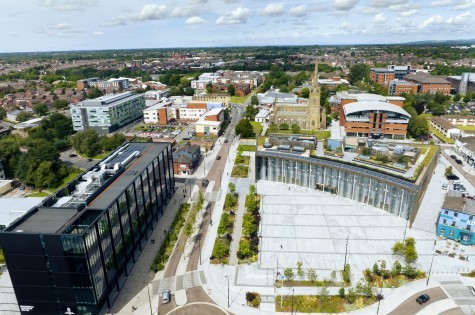The construction sector’s bumpy ride looks set to continue for the time being as firms go on feeling the impacts of inflation and tax increases, according to a leading North West-based advisor to the sector.
Joe Sullivan, partner at accountancy and advisory firm MHA, which has Lancashire offices in Preston and Lancaster, was commenting after the release of the construction purchasing manager’s index (PMI) data for June.
The data, compiled by S&P Global, offers a monthly confidence barometer by surveying firms across the construction sector about their current activity levels, order book, staffing levels, costs and future output expectations.
The index rose slightly to 48.8, but remains below the 50.0 threshold which shows the sector as a whole is growing, rather than contracting.
Joe, who advises property and construction businesses across the region, said: “Despite this being the slowest contraction for six months, the construction PMI remains below the 50.0 threshold, suggesting that the sector is continuing to struggle.
“Persistently high inflation and the impact of the tax increases from last year’s Budget continue to weigh heavily on balance sheets and are preventing businesses from investing, particularly in the commercial and civil engineering sectors. However, housebuilding was the bright spot in this month’s PMI as it has grown for the first time since September 2024.
“However, the omission of construction from the Industrial Strategy’s eight priority sectors has also raised concern across the built environment. For a sector that underpins infrastructure, housing and industrial delivery - and contributes around 7% of UK GDP - the lack of formal recognition suggests a misalignment between policy ambition and practical implementation.
Joe added: “As we progress through the year, it is hoped that the government’s commitment to spending £165bn on construction and housing over a 10-year horizon will give the industry some confidence and certainty to kickstart projects and begin investing. However, for these projects to be delivered at the pace required, the industry’s skills gap needs to be addressed with some urgency.
“In addition, if inflation continues to remain sticky and further tax rises are announced in this year’s Budget, it could be a bumpy ride ahead.”
Enjoyed this? Read more from MHA




















